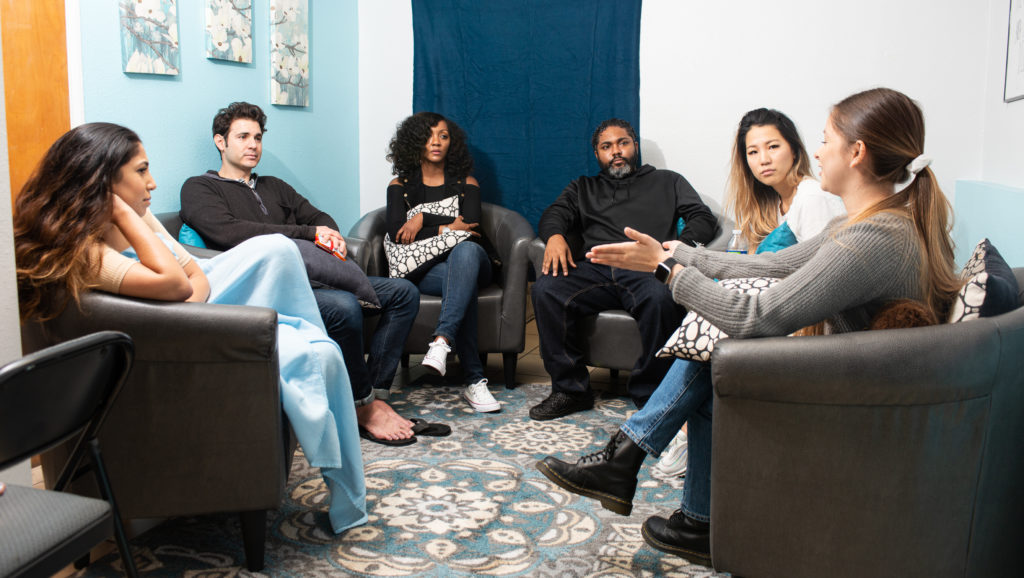Reflections from therapist Jennifer Dean

Knowing how to approach or relate to someone who has been through extreme trauma can be a daunting task, particularly if you have never experienced that type of hardship before. Even with the best of intentions, a particular response or lack of response could have harmful repercussions.
Psychotherapist Jennifer Dean has been working with individual clients and facilitating therapy groups at Journey Out for almost six years. Her passion for helping women who have experienced sex trafficking and abuse has led her to advocate for victims locally and globally, as well as conduct empowerment based programming directed towards at risk girls and foster youth. She sat down with us to share her insights on working with survivors of trauma. Whether you are a therapist, volunteer, or simply want to equip yourself in the event that you come across someone who has experienced trauma, her suggestions can help you have a positive interaction.

Trauma can mean so many different things. How do you define trauma and a trauma survivor?
Trauma refers to a situation where someone was severely affected by some kind of threat, and they likely felt as if their actual life was being threatened. Trauma can happen from a one-time event, or it can occur over time. Trauma that occurs in childhood is generally harder to recover from because children don’t have any way to escape threats or abuse. One of the tools children use to protect themselves is dissociation, and this is a pattern that can continue in adulthood because it has become a learned way of operating in the world.
A trauma survivor is someone who has experienced an adverse situation, yet this person is resilient and working on their personal healing. They have spent time processing the traumatic event and are moving into a new role where they feel less like a victim and more empowered.
What types of trauma survivors do you assist?
I often work with clients who have experienced childhood sexual and physical abuse, emotional abuse, rape, abusive relationships and neglect. Parental neglect is an enormous source of trauma that often goes unnoticed. Children who were raised by an alcoholic or drug-addicted parent, or a parent who was suffering from a mental illness may have experienced early neglect when they were pre-verbal. Trauma that occurs in early childhood can affect the way the brain develops, and all traumas affect the nervous system and can cause debilitating physical symptoms.
How did you first begin working with survivors of sex trafficking?
Like so many other people, I would hear stories on the news about sex trafficking, and I just felt so helpless. When I found out that children were being trafficked in our own country and in our very own neighborhoods, I felt compelled to take action. I came to Journey Out about five and a half years ago, and I love working with the clients here because I can help young women change the way they see themselves. Generally choices have been made for them from a very early age, which in turn has set forth a lifestyle for them. Once they have the opportunity to understand that what happened to them wasn’t their fault, they can begin the journey of healing. And we can empower them to see that there are other choices for them, and encourage them to change the trajectory of their lives if they want something different. This is extremely exciting because they are not only changing their lives, but they are changing the patterns for their children as well.
What is the biggest misconception people have about creating rapport with survivors?
Creating rapport with a trauma survivor is often intimidating for people because they might be worried they’re going to say the wrong thing. It’s important to keep in mind that trauma survivors are often experiencing shame, guilt, isolation and denial. What they really need is reassurance, consistency and patience to assist them in moving out of the patterns that have become survival mechanisms for them. A misconception might be that you shouldn’t bring up anything uncomfortable and just sort of ignore the elephant in the room, to avoid upsetting someone. Rather than ignoring information that you might be aware of, you can instead let the individual know that you are around if they feel like talking. This can allow someone to feel seen, reassured, and in control of their own process.
What are some differences in the approach one should take to create rapport as a clinician vs. as an every day person in the community?
Clinicians are trained to observe signs and behaviors, so the approach they take with a trauma survivor is based on what they see, hear and feel from the client. They may use somatic approaches and work directly with releasing trauma through the body, or they may work on building trust and rapport so the survivor can feel safe enough to work with the memories and triggers they likely experience.
As an everyday person in the community it’s important to know that although you may have a desire to make someone feel better, it’s impossible to take away someone’s experience for them. But what you can do is offer support, and if it’s someone who will be in your life for a while, you can work on building a trusting relationship. You can also practice being more sensitive to fluctuations in mood or behavior, and perhaps give them a pass if they behave a little erratically at times. Trauma affects a person’s decision making and behavior patterns, and it’s really important to remember that if this thing hadn’t happened to them, they likely wouldn’t be behaving in the way that they are.
For a deeper dive into how to build rapport with survivors of trauma and especially sex trafficking, check out our YouTube interview with Jennifer below.


